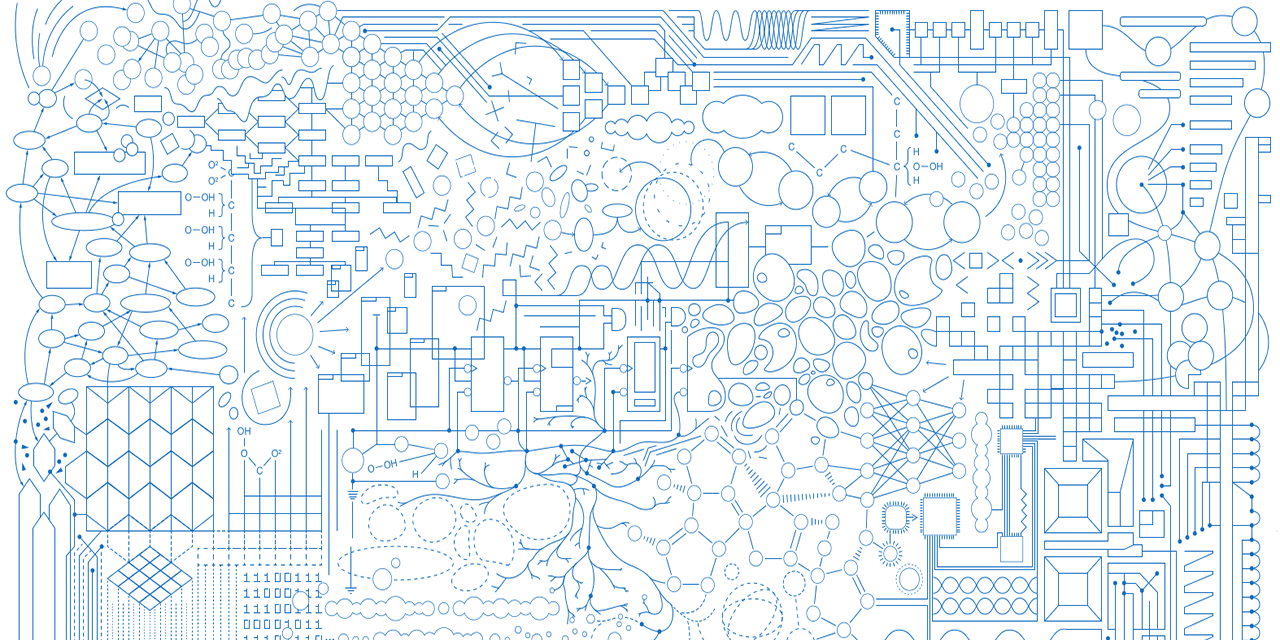A look back: Art and Science: Openness Creates Something New
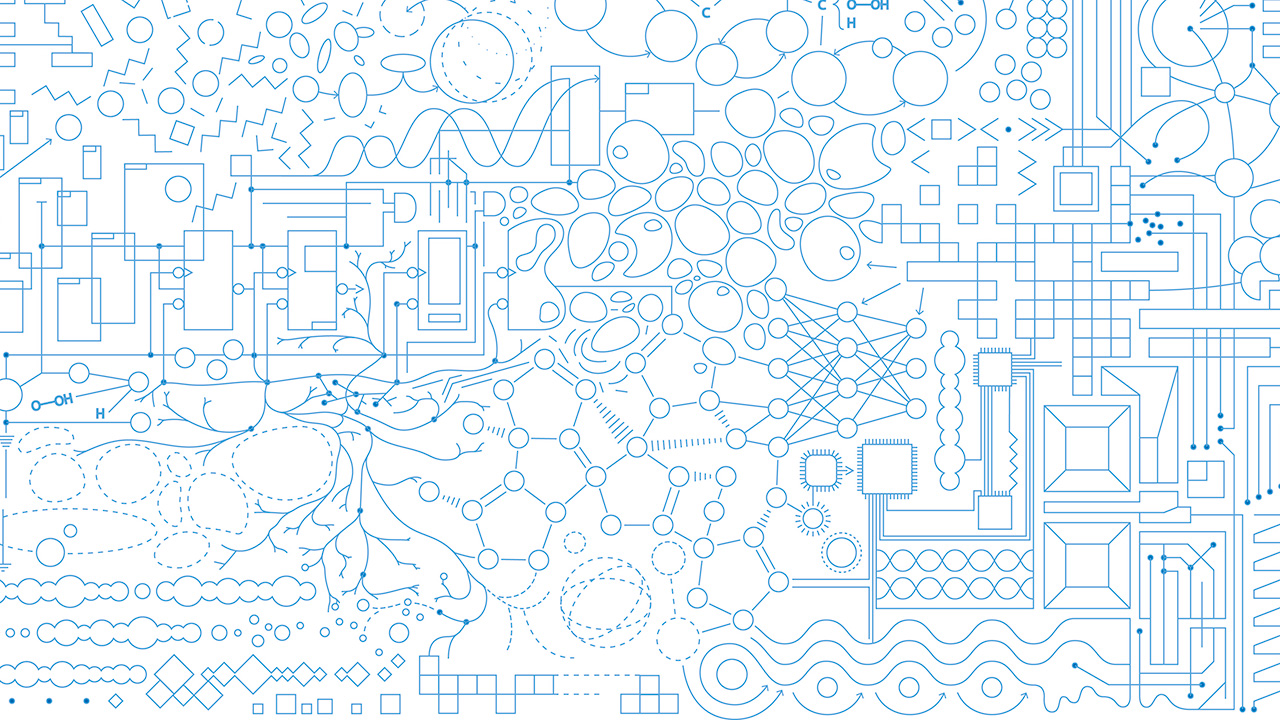
How can we develop holistic solutions in an increasingly complex world? This question was debated on April 30, 2022 at the panel discussion “Towards Eco-social Renewal: blueprints for collaboration between science and the arts” at the Amerikahaus in Munich.
c:o/re director Stefan Böschen and Vera Meyer, acatech member and Professor of Applied and Molecular Microbiology at TU Berlin, discussed how art and science can intertwine and what potential they hold.
An article about the debate can be found on acatech’s website.
Call for Contributions
For the international conference Nowhere(to)land? What Science Studies Contribute to Science Communication, that will take place in Bonn in June 14th to 16th, 2023, the Rhine Ruhr Center for Science Communication Research (RRC) and c:o/re are inviting researchers to submit proposals for contributions on the topic of STS and SCS. Deadline is January 15th, 2023.
Livestream to “Varieties of Science”
You can follow the workshop Varieties of Science: Patterns of Knowledge, that c:o/re organizes together with the Seminario Tecnologías Filosóficas at UNAM in Mexico City, live on Youtube. The Workshop starts on Monday 5th, Dec at 10 am (5pm CET) [LINK to Livestream] and continues on Tuesday 6th, at 10:30 (5.30 CET) [LINK to Livestream].
c:o/re on film – highlights of the inauguration
On July 4th, we celebrated the Inauguration of our Center in Aachen’s Historical Town Hall with many friends and colleagues. The program included an insightful key lecture by STS scholar Karin Knorr Cetina on epistemic shifts in the digital age and a rich discussion on interdisciplinarity and the past and future transformations of research cultures with the journalist Jan-Martin Wiarda, historian Hans-Jörg Rheinberger, chemist Matthias Wessling, and microbiologist Lars Blank. If you would, besides our written report of the event, you can get an insight into the even by watching the highlights here:
Science night @RWTH Aachen University. c:o/re asks: what is science?
On November 11 a Science night (Wissenschaftsnacht) took place at RWTH Aachen University. This was an open-doors event in the University’s impressive CARL building, where various university departments and research groups exhibited their work, in a welcoming ambiance, aided by food and drinks (see program here). The c:o/re team took this opportunity to engage in dialog with the attendees. While many colleagues such as engineers and natural scientists represented their work by showcasing actual technological products, we thought to best represent our work by irritating and inspiring science-enthusiasts with the question what is science?
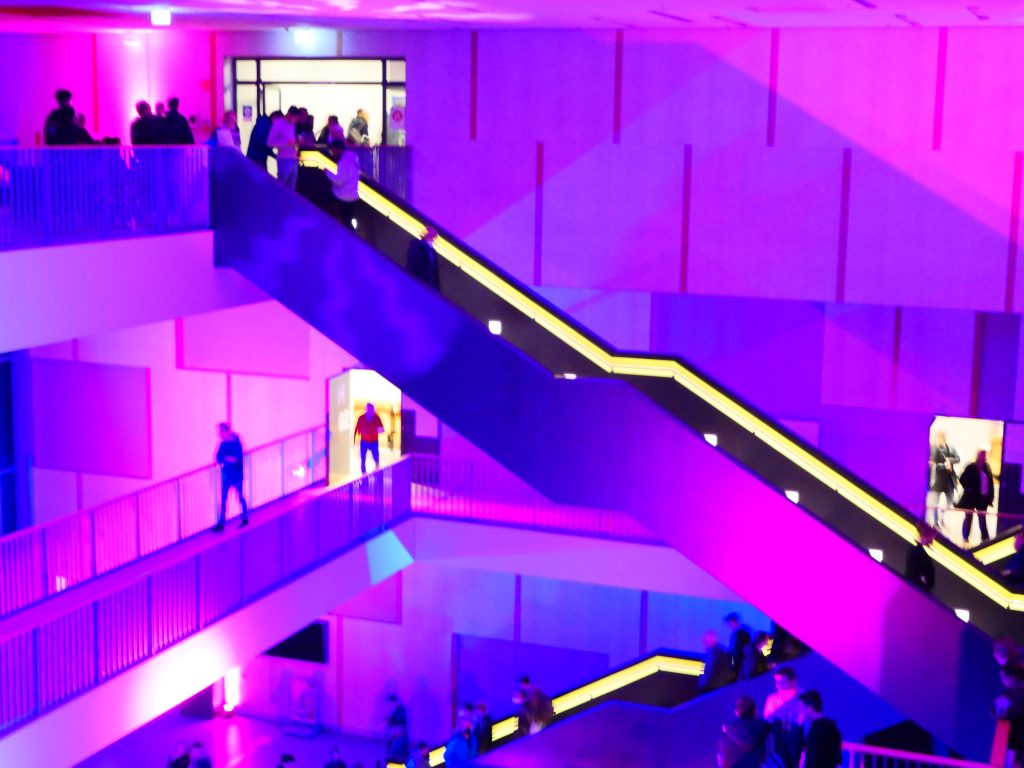
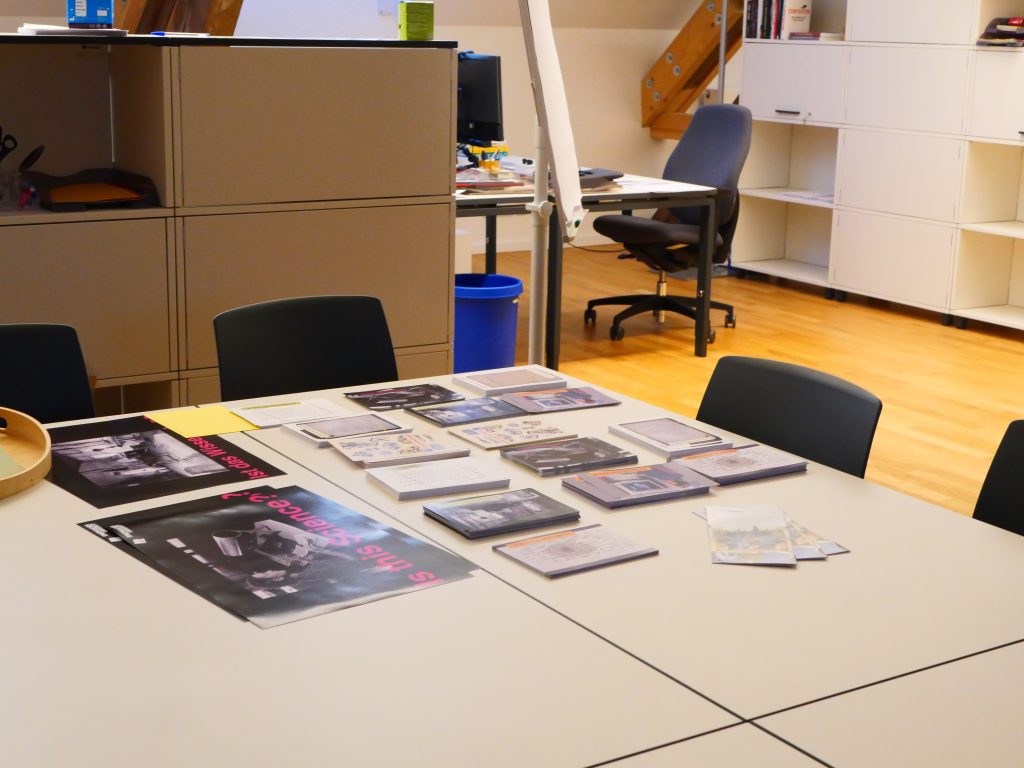
That is, in the best of philosophical traditions, instead of pointing to solutions and giving answers, important and urgent as that is, we invited to reflection and dialogue through questioning. Specifically, prompted by materials that we prepared aiming to inspire conversation we asked the more subtle and challenging question addressing our interlocutors: what is your science?
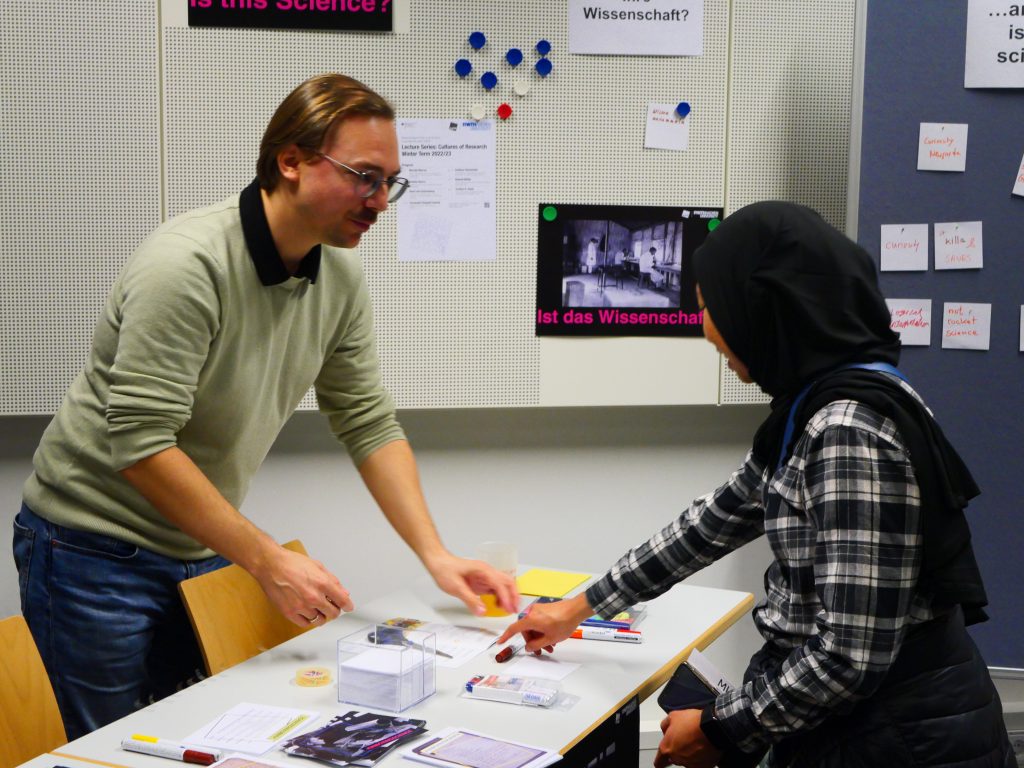
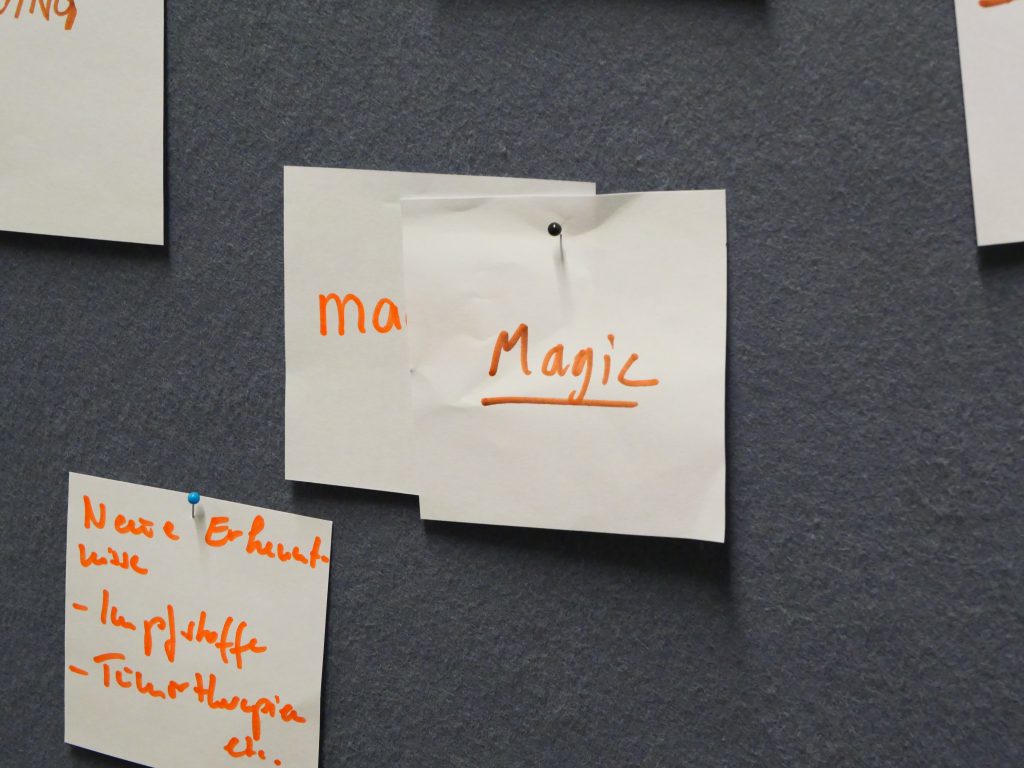
This was an excellent event and we are grateful to the University for organizing it. It helped us both to better reach out to interested stakeholders that are not formally part of higher education institutions and, also, to connect with colleagues from other departments and faculties. As a result, many citizens from the Aachen region now know about the Käte Hamburger Research Centres and about c:o/re. We had very interesting and challenging discussions with a diverse public, from children to students and to professors, and we discovered many common interests with colleagues working in, for example, bioeconomics and teacher training. We used prompts, such as postcards and posters, to intrigue passers-by about the difficulties of pinning down what science is. The people we talked to left their impressions on what is science on post-it notes. We collected the notes, thus forming a collection that can now serve as an unusual set of data, at least for stimulating wonder and inspiring questions, if not for conducting concrete research. The many answers ranged from claiming that science is “magic”, to “applied imagination”, “ongoing” and to “what can be debunked” and “fallibilism”.
We are now pursuing the dialogues that we started with colleagues at this event and we look forward to next year’s Science night!
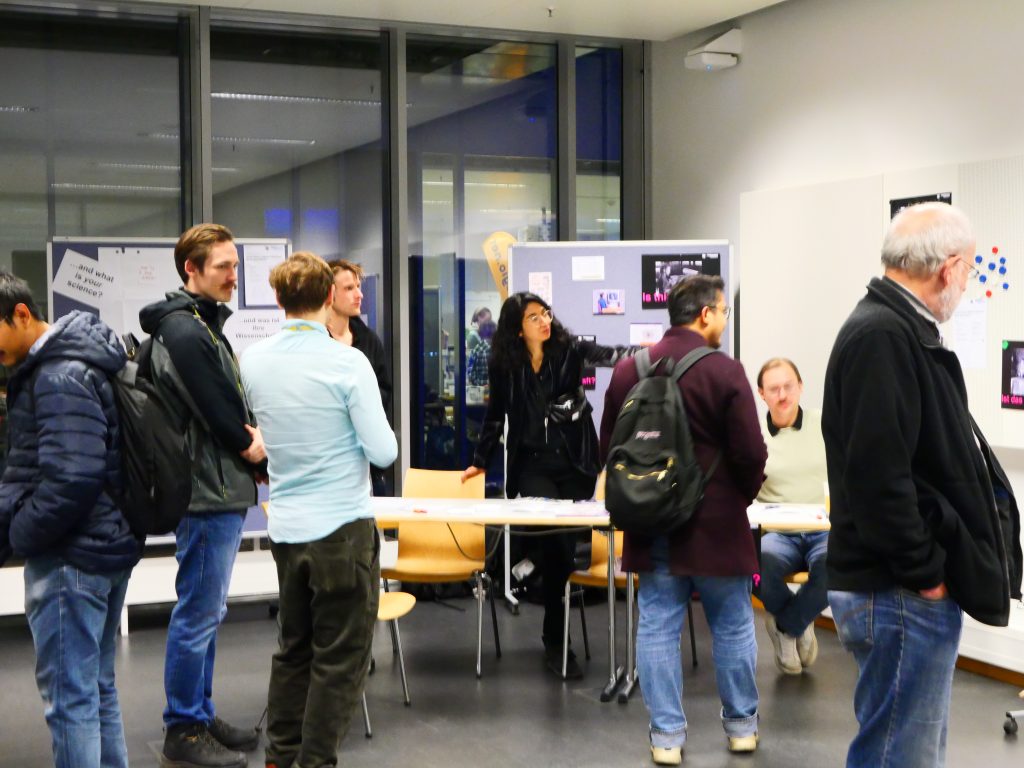
Software as research culture: new study group at c:/ore, focused on software
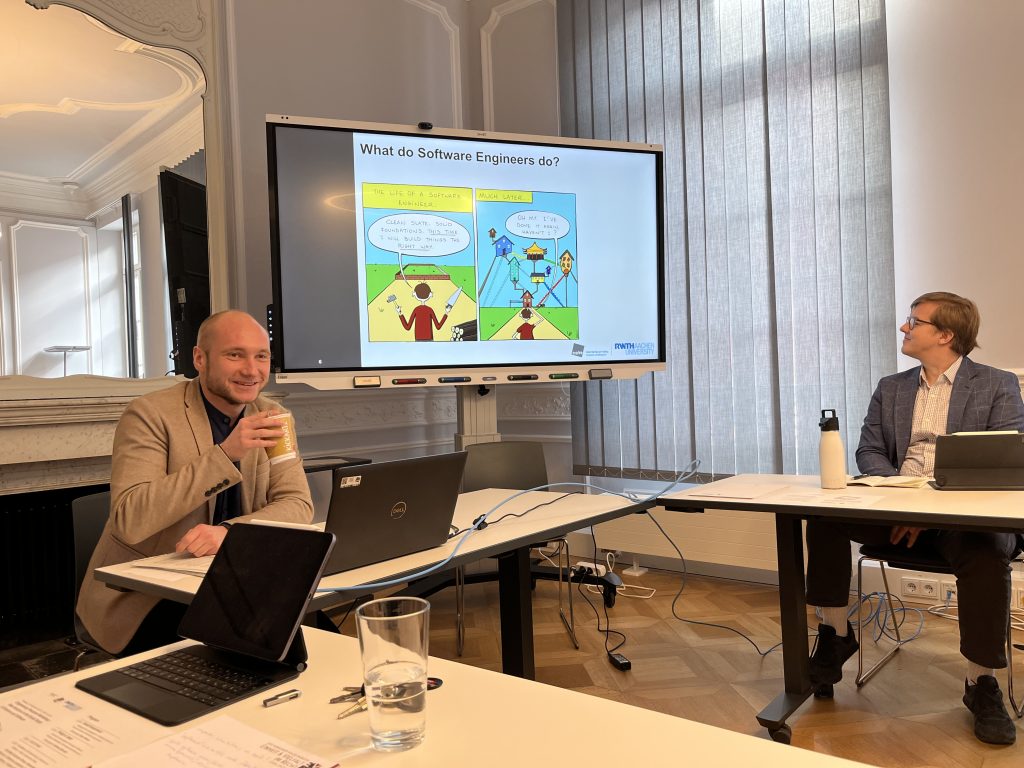
The work that this group pursues aligns with that of the Computational Science Studies Lab, set up by Professor Gabriele Gramelsberger, Chair for Philosophy of Science and Technology (Humtec, RWTH Aachen University) and Director of c:o/re. The work of c:o/re fellow Alexandre Hocquet and his co-author Frederic Wieber on computational chemistry has been instrumental to setting the directions of this research group. An important observation by Alexandre Hocquet, through which this group is working to conceptualize software, is that software is not just code. It involves much more, being a cultural practice. Also, a critical insight came from Gabriele Gramelsberger who stated that “software is an alien”.
On November 8 and 9 the Engineering Practices Workshop: New Horizons in the Social Study of Science and Software took place at c:o/re. This workshop marks the formation of a group, within c:o/re, focused on software research. The group consists in former and current c:o/re fellows and c:o/re team members, all of whom share an interest for software studies, but coming from various angles.
The workshop started with two talks by c:o/re team members Dawid Kasprowicz on Managing the unmanageable: Is software engineering the art or science of scientific programming? and Phillip H. Roth on Scientific communication in the age of software: Sorting out materiality, community and infrastructure. c:o/re fellows Benjamin Peters and Arianna Borrelli acted as discussants to these presentations, opening then the debate to the entire group. Dawid Kasprowicz opened the question on how does scientific programming look like from a software engineering perspective, touching upon matters such as research reproducibility and the transferability software engineering knowledge. In his response, Benjamin Peters remarked that software in unmanageable in interesting ways. Analogies to previous technologies and practices are often improper, as software it is not 4-dimensional, but potentially (infinitely) n-dimensional.
Phillip H. Roth asked how doe representations of science and, consequently, science itself, too, change through technological change?
These talks were followed by a roundtable consisting in several c:o/re team members and fellows. Each tackled software from a disciplinary angle.
On the second day of the workshop, the group tried to make a synthesis of the discussion and set the ground for a position paper on software on which they are now working.
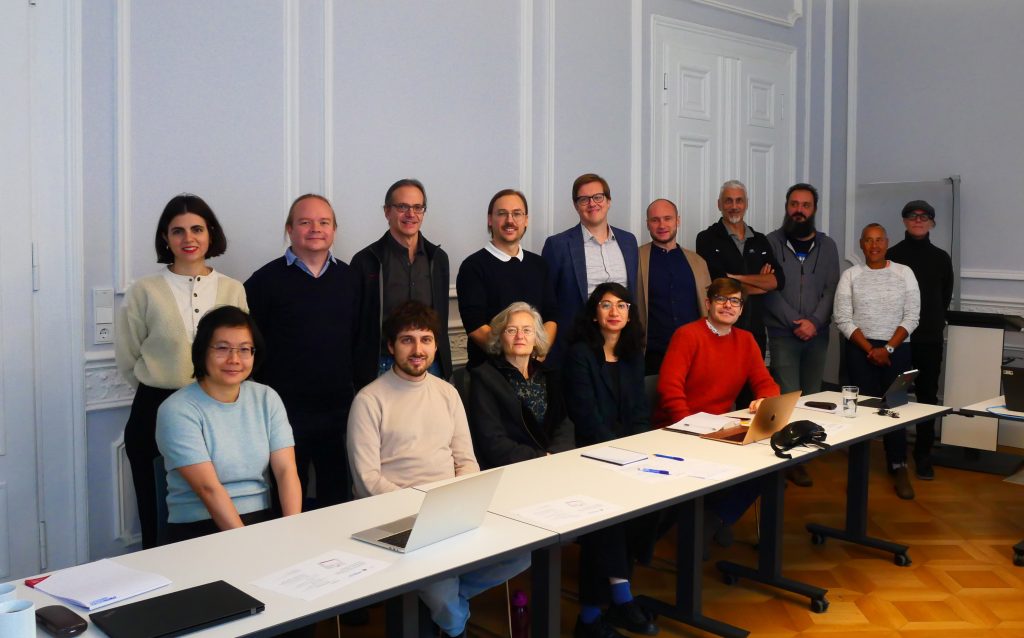
Welcome new c:o/re fellows!
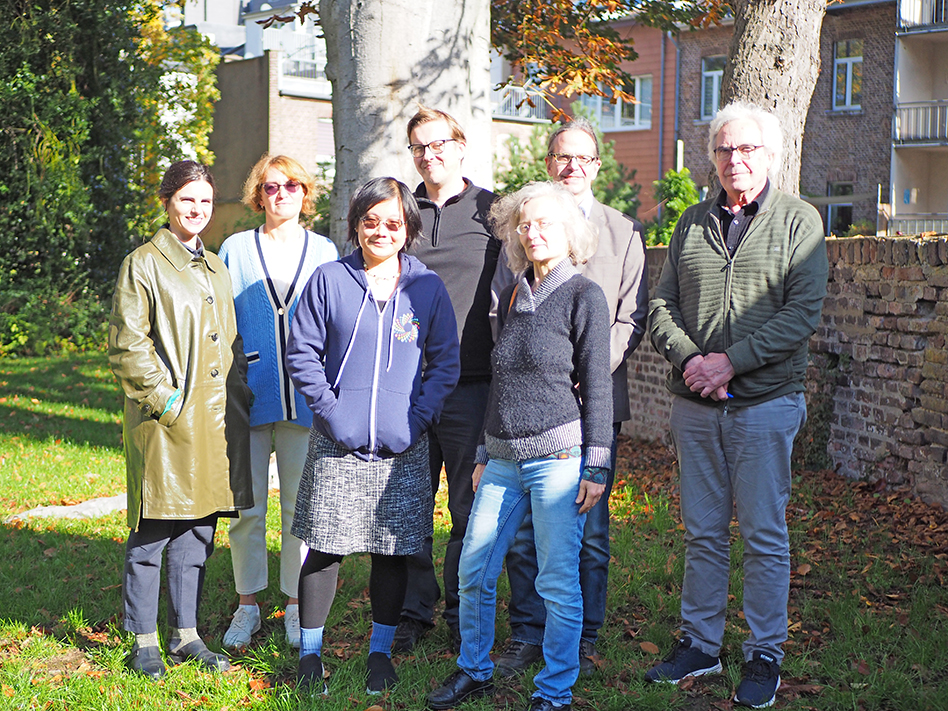
We are delighted to announce the fellows starting their projects at c:o/re this year! We are warmly welcoming Arianna Borelli, Anna Laktionova, Clarissa Ai Ling Lee, Benjamin Peters, Svitlana Shcherbak, Jan Cornelius Schmidt, Roland Wittje and Nelson Casimiro Zavale!
We hope that they will have a great time at c:o/re!
Cultures of research in dialogue
We would like to thank Wissenschaft im Dialogue for the inspiring Hackathon on science communication! We, the c:o/re team, learned a lot from the intense two-day dialogue we had on science, science communication, designing interactivity and many other related topics.
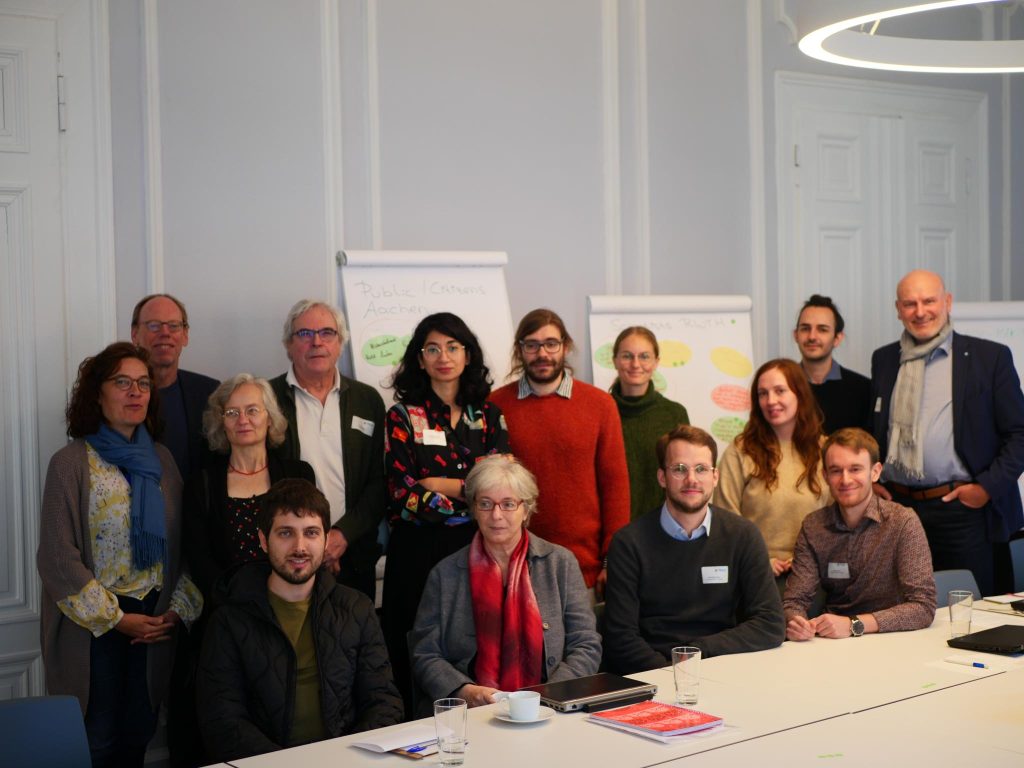
Dialogue on robotics an AI at c:o/re
c:o/re started during a new wave of academic interest for the philosophy of AI. Many seminars, lectures and workshops that took place at c:o/re during its first year, hence, pursued this intellectual current, often with a focus on human-robot interaction and rethinking the object of anthropological study in light of newly emerging reflections in this area. Stemming from these discussions we would like to direct our readers to Joffrey Becker‘s (2022) recent paper and Dawid Kapsprowicz‘ (2022) response to it.
Taking a social anthropology perspective, Becker (2022) aims “to identify the fields to be studied in order to address the effects that so-called intelligent machines can have for societies.” He concludes “that it is not possible to fully grasp the social transformations at work without considering at least three categories of problems.” The categories he identifies have to do with (1) the status and reliance of machines on life processes, (2) human interactions with machines and (3) the reconfiguration of human organizations and activities that machines produce.
Kasprowicz’ (2022) answer is favourable, with some observations. He remarks that AI is not the only attribute of robots and that, in understanding robots, matters such as life-likeness, robustness, anthropomorphism and resilience in hostile environments must also be closely considered. Kasprowicz concludes by adding to Becker’s proposal that “No matter how ‘smart’ the machine will act, the contingency of communication between two bodies and the need for maintaining relations will continue.”
References
Becker, Joffrey. 2022. “The Three Problems of Robots and AI.” Social Epistemology Review and Reply Collective 11 (5): 44-49. https://wp.me/p1Bfg0-6OH.
Kasprowicz, Dawid. 2022. “Maintaining Relations and Re-Engineering the Social: A Reply to Becker’s ‘The Three Problems of Robotics and AI’.” Social Epistemology Review and Reply Collective 11 (8): 50-56. https://wp.me/p1Bfg0-74G.
Joost-Pieter Katoen demystifies probabilistic modeling
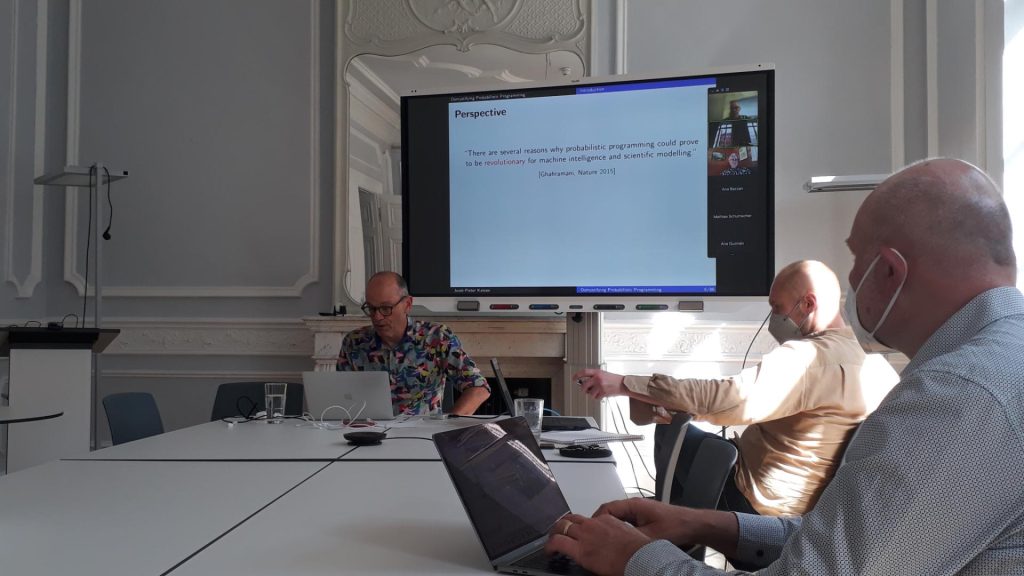
On July 13th, Professor Joost-Pieter Katoen (RWTH Aachen University) gave the final Philosophy of AI lecture: Optimistic and Pessimistic Views lecture at c:o/re, titled “Demystifying probabilistic programming“. The talk convincingly advocated the usefulness and accuracy of probabilistic inferences as performed by computers. Various types of machine learning, argued Joost-Pieter Katoen, can benefit from being developed through probabilistic programming. The underling claim is that probabilistic programs are a universal modeling formalism. Far from implying that this could result in softwares that could successfully replace humans from inferential and decision-making processes, probabilistic programming relies on correct parameterisation, which is an input provided by humans.
The c:o/re team would like to thank Professor Frederik Stjernfelt and Dr. Markus Pantsar for organizing the lecture series Philosophy of AI: Optimistic and Pessimistic Views, which ran throughout the summer semester of 2022.
References
probabilistic inference
Training of neural networks
References
Ghahramani, Zoubin. 2015. Probabilistic machine learning and artificial intelligence. Nature 521: 452–459.

